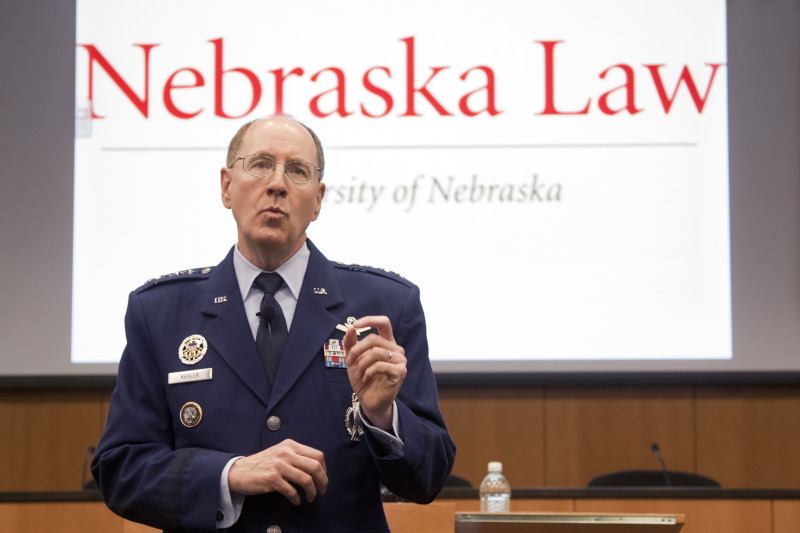
It’s a bit of a cliché for professors to tell students that if they work hard and do well in school, then the sky is the limit. Especially at the University of Nebraska College of Law – where that old saying is, quite literally, obsolete.
The college launched its innovative Space, Cyber and Telecommunications Law Program in 2008, becoming the nation’s only master-of-laws program, or LL.M., of its kind. By uniquely infusing cyber and telecommunications law to the mix, Nebraska also has the only such program taught in English anywhere in the world.
Through the program, Nebraska law students can earn a credential aimed at legal careers surrounding everything from commercial space travel to international satellite placement, from cyber-security to privacy issues, from matters that involve the U.S. Air Force and NASA to the cable TV and Internet providers who beam information into our homes. It has drawn students from top law schools around the country, including fellow Big Ten institutions.
“These are fast-emerging areas that will continue to become more and more relevant in our daily lives,” said Matt Schaefer, professor of law and the program’s director. “So it’s important that we have well-trained people with expertise in these areas. At Nebraska, we’re preparing our students for this always-changing legal and technological landscape.”
Twice a year –- once in Lincoln and once in Washington, D.C. -- the college also gathers national and international experts to discuss the latest topics, trends and issues in the field. It’s an opportunity, Schaefer said, to expose students to authorities on the leading edge of space, cyber and telecommunications.
“Our conferences are a valuable resource, where we gather together some of the key thinkers from around the world,” he said.
Every day, meanwhile, Nebraska law students interact with notable faculty such as Schaefer, who is the former director of the International Economic Affairs Office of the National Security Council; Frans von der Dunk, a consultant to the Dutch government and the European Space Agency; and, beginning this fall, Jack Beard, the former Associate General Counsel for the Department of Defense for International Affairs who previously worked on legal matters including arms control agreements, defense cooperation and weapons dismantlement programs in the former Soviet republics.
“Nebraska may seem like a long way from national security concerns, but it’s actually right in the middle of it all,” Beard said, noting that U.S. Strategic Command, which is responsible for important U.S. space and cyber activities, is an hour’s drive to Omaha. “We have the foundation here to be a significant force in space, cyber and telecommunications law for years to come.”
- Steve Smith, University Communications